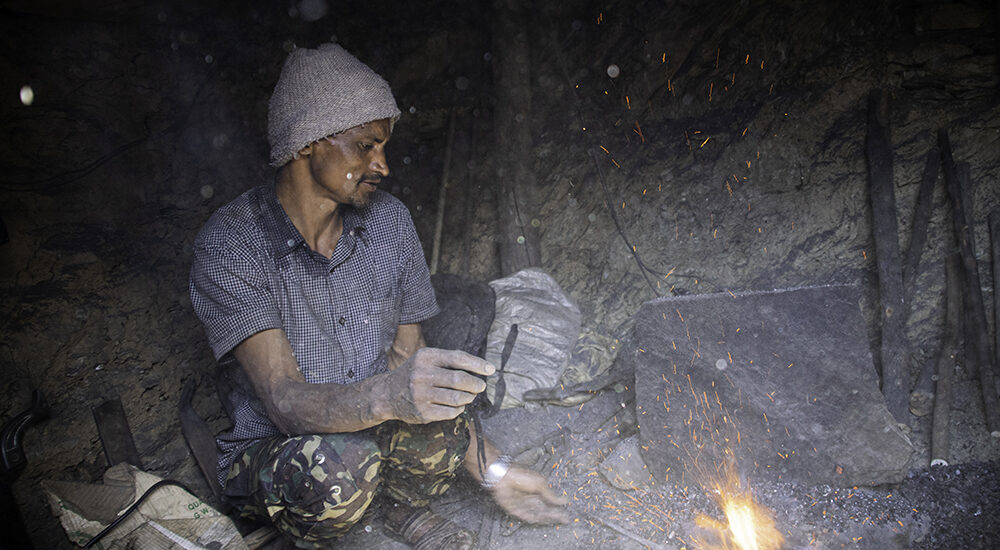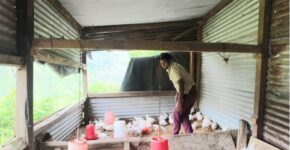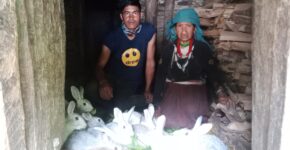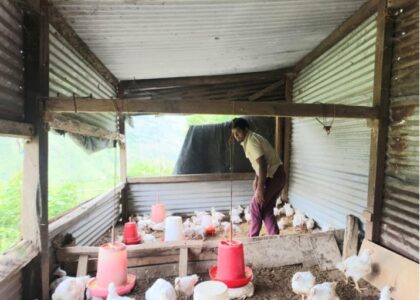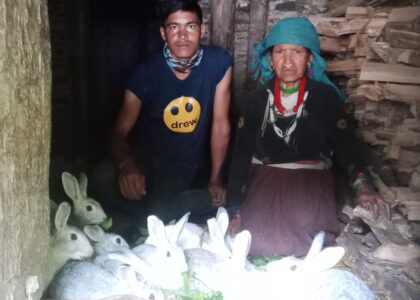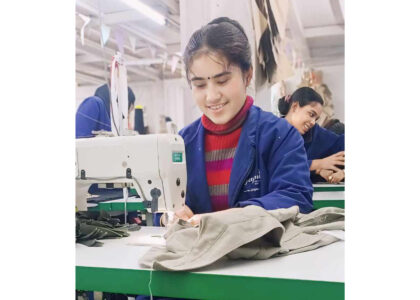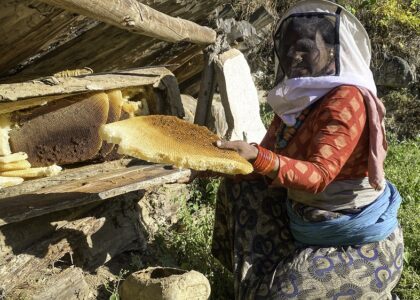On the top of the green hills of Thalara-2, Dhangaji, Bajhang, is the ‘Malika Bhawani Allo Udyog’ (cloth weaving) owned by Anju Khati (38 years). Inside the industry, one can see the machines for making all kinds of goods, including scarves, bags, bedsheets, cloth, and knitting yarn. In the same cloth weaving room, Anju is seen busy weaving something.
Having spent some time in India, she had been farming in the village. At the same time, it became more difficult to get a job after COVID-19. At the same time, the Sirjana project started in her municipality. She also reached out to see if there was any work. She then enrolled to take Allo’s training for 1 month in her own village and 3 months in Dang. After returning to the village with the training, she decided to start an allo industry by herself.
For the allo industry, the Sirjana project is supported by providing 3 modern mills, 2 looms, clothes racks, scarf-making machines, etc. Then she started weaving coats, shorts, pants, shoes, slippers, scarfs, bags, etc. She says, “At first I was surprised to hear that clothes are made even from the Allo, but now I am amazed to weave Allo’s clothes myself.” The demand for the products produced in her industry is high in her own village. The colorful neck scarf (Khada) woven by her is quite famous in the programs at the ward and municipality.
People bring her the bark of allo from the Himalayas for her industry to make a fiber called bast fiber. Allos are commonly found in higher-altitude regions. They are cooked and processed to make yarn. Her husband, son, and villagers help her make yarn. She buys the yarn made by the villagers and weaves it on the cloth loom. She prepares the yarn for the next day. The villagers have been joining the process of making yarn in her industry. They also want to learn to weave clothes on a loom. After the growth of her business, she wants to employ them in her industry.
The allo industry has been giving good returns. She earns 30–40 thousand per month. Her earnings are used for home expenses and to spend on her children’s education. She says, “Making yarn oneself is difficult and time-consuming, as one has to do it by hand.”If we had a yarn-making machine, we could weave a lot of cloth.” In order to make more products in less time, she concentrates herself on weaving. With this, her income has gradually increased.
She is not interested in farming anymore; rather, she enjoys spending time in her industry. She is passionate about her work and wants to grow her business. The Sirjana project has been a big investment. The villagers and her family have been helping to make yarn with her encouragement. She has been working alone in the allo industry but has a dream to expand her business by fully utilizing available machines and engaging her family as well as the villagers’ income generation in the near future.


